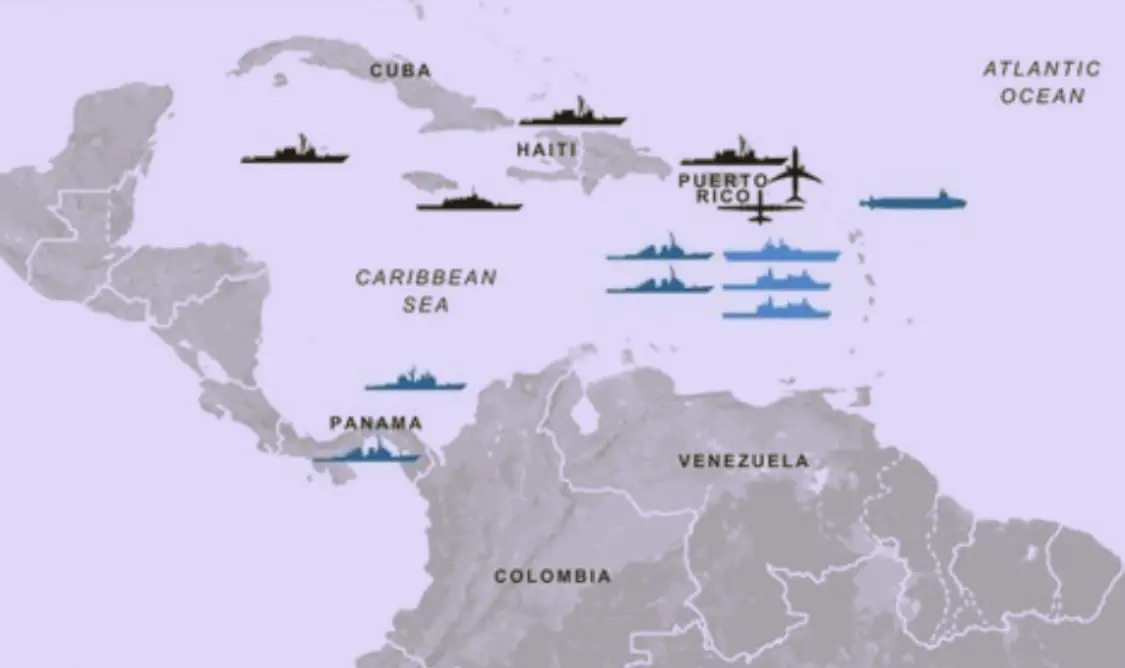Depicted on Jamaica’s $500 note is one of the country’s greatest national heroes, an imposing, mystical figure known simply as Nanny, one of the leaders of Jamaica’s legendary Maroons.
The Maroons were a resistance movement composed mainly of escaped slaves, who rose up against British colonial oppression in a series of wars between the mid-17th and late 18th centuries. Their mighty deeds are carved into the bedrock of Jamaican history, and their memory burns brightly in the Jamaican soul. (History of the Jamaican Maroons and Cockpit Country, National Library of Jamaica)
They have inspired revolutionary anti-slavery, antiracist and anti-imperialist movements the world over.
The stronghold of the Maroons, a hilly and densely vegetated region of Jamaica known as Cockpit Country, is now under threat from another enemy – mining corporations.
The destructive effects of bauxite mining (used to make aluminium) has been causing damage not only to the local environment but also consequentially to local communities, who have suffered repeated health problems and damage to their livelihoods as a result of the industry’s activities since the mid-20th century.
According to the Jamaica Environment Trust (Jet), in an analysis of the industry’s impact entitled ‘Red Dirt’, the costs of bauxite-alumina mining and processing in the region far outweigh any benefits it might have brought. (2022)
History of Jamaica’s bauxite-alumina industry
Bauxite was discovered in Jamaica in 1942 and the deposit there is considered to be of a very fine grain, quite unique in global reserves of this important mineral compound. Mining and processing began in earnest in the country in the 1950s.
The economic boom of the postwar period in the west required the light metal aluminium in many consumer goods, from cars to kitchen appliances, not to mention the requirements of the US military-industrial complex in the manufacture of aircraft, etc. Thus the industry provided rich pickings for profiteers in the commodity production industries. (Javier Blas and Jack Farchy, The World for Sale: Money, Power and the Traders Who Barter the Earth’s Resources, Chapter 3)
By 1957, Jamaica was the world’s leading producer of bauxite, but over decades it dropped to tenth place as bauxite mining took off in other parts of the globe. The industry was originally controlled within the country by four main players – Canada’s Alcan and Reynolds, Kaiser and Alcoa from the USA. As of 2022, the corporations are Jamalco (a subsidiary of Alcoa), Windalco (owned by Russian mining corporation UC Rusal) and Discovery Bauxite Partners (a subsidiary of US-based Atlantic Alumina).
The Jamaican government currently owns 45 percent of Jamalco and 51 percent of Discovery Bauxite Partners. Despite the Jamaican state having at least part-ownership of two of these projects, the money flowing into the Jamaican treasury does not even cover the cost to the country in terms of ecological and social damage.
Main findings of Jet’s Red Dirt deport
The Jamaica Environment Trust report found that bauxite mining and processing have had some significant impacts on both the local environment and the communities who rely on it, most of them negative.
On the positive side, the industry has been responsible for funding schools and scholarships, community centres and greenhouse projects. It also represents 1.5 percent of Jamaica’s GDP, 6 percent of its total exports, and 0.4 percent of its employment. (In contrast, Jamaica’s agricultural sector employs 14 percent of the total workforce and represents 8 percent of GDP.)
On the down side, the bauxite mining industry has been found to be responsible for deforestation and ecological degradation affecting the island’s often unique flora and fauna. The production of caustic dust and other pollutants has lowered air, water and soil quality, forcing the relocation of local residents and the loss of their livelihoods.
The industry has also had a significant impact on public health, with costs for treatments estimated to run into several billion US dollars per year.
The industry has not responded very favourably to claims from residents that their livelihoods and health have been impacted by its activity. Just one impact study has been carried out over the years, despite multiple complaints from residents. The industry claims that many of those complaining are just trying their luck in the hope of a bit of compensation money, although bauxite processing is well known to involve the use of a caustic fluid which, after drying, blows into the atmosphere and causes damage to lungs, plant life and homes.
There have also been many cases of illegal dumping of toxic effluent by bauxite mining corporations. Despite their having been sent notices threatening their permits, very little has actually been done by the Jamaican authorities to control this problem. The fines for breaking environmental regulations are considered wholly inadequate by Jet, even if they were to be rigorously enforced – an acceptable cost of ‘doing business’.
Meanwhile, so little data has been gathered or maintained by the Jamaican government on the industry’s activities and impact that it is difficult be sure quite how much damage it has really caused. As it stands, it is estimated that the public health cost to Jamaica from just three of its many pollutants ranges from between US$2.9bn to $13bn a year. Compare this with the roughly $1bn the industry contributes to Jamaica’s GDP.
The effect on local livelihoods, particularly farming, have been stark. Jamaican farmers say that reclaimed bauxite pits give very poor results in terms of crop yield when farmed. Regulations do not require mining corporations to replace much of the soil they have removed during the mining process, and what they do replace often has very poor fertility.
That is if they bother to close and rehabilitate the pits at all. Jet learned during its research that some corporations have just been leaving spent mines ‘open’, since declaring them closed costs money and time in the form of compulsory land rehabilitation. Thus the industry appears to be taking any opportunity to circumvent whatever regulations have been put in place to protect the local environment and its population.
A troubling aspect of Jet’s findings has also been the lack of transparency on the part of Jamaica’s government regarding the industry. The investigators had difficulty obtaining comprehensive and up-to-date data for their report, making it impossible for a comprehensive costs versus benefits analysis to be carried out. This is considered especially necessary to fully assess how Cockpit Country is being impacted.
Impact on Jamaican citizens’ rights
The Red Dirt report also examined the industry’s impacts on constitutional rights. Under the Jamaican constitution, citizens have a right to enjoy a healthy, productive environment free from environmental abuse and degradation of the island’s ecological heritage. (2011 Charter of Fundamental Rights and Freedoms)
A healthy environment is defined as clean air, safe and sufficient water, healthy and sustainably produced food, healthy ecosystems and biodiversity – a non-toxic environment in which to live, work, study and play. The bauxite-alumina industry is apparently failing Jamaica’s citizens on all these counts, creating the grounds for Jamaicans to demand that something be done by their government.
Many Jamaicans would be entitled to compensatory reparations from the industry if their health or livelihoods could be proven to have been impacted.
Has the bauxite-alumina industry had its day in Jamaica?
It is acknowledged by Jet that, in the past, the industry did bring some benefits to Jamaica and its people. It brought much-needed revenue, while collective bargaining processes brought higher wages for its workers.
At this point, however, the negative impacts of the industry vastly outweigh any positive benefits it may once have brought. It is proving to be a liability not only in terms of public health but also in terms of social, economic and ecological wellbeing.
This story of ecological vandalism and destruction of the people’s health by looting corporations is an all too familiar one, especially to the citizens of the oppressed countries. Their governments are bought off or otherwise blackmailed by the imperialists and look the other way while their countries’ resources are extracted with minimum care for the people or the environment, and no thought at all for the long-term consequences.
This does not mean that we should do away with all mining, however. What we need is an economic system in which industrial activity is carried out in a way that is beneficial to the people and takes into account not only their need for advanced production but also their need for a decent livelihood and a clean and liveable environment.
Production for maximum profit will never solve this problem. Only socialism and a planned economy can deliver ration industry and a decent live to the people of Jamaica.















